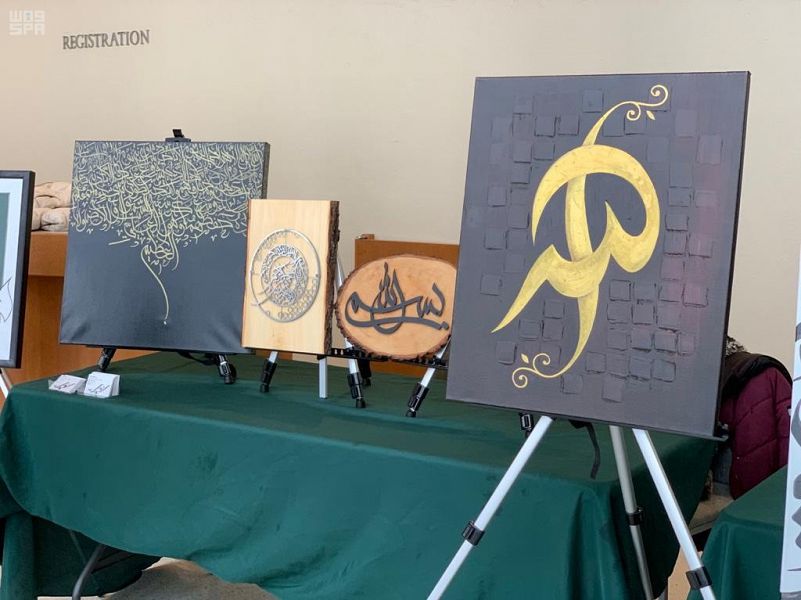
Saudi Culture Minister Bader bin Abdullah bin Mohammed bin Farhan Al Saud celebrated the kingdom’s top linguists and laureates on the International Mother Language Day (IMLD), held on February 21st each year.
“Our mother tongue constitutes our intellectual and civilization vessel-- hereby on the International Mother Language Day, we are reminded of Saudi linguists who helped in preserving our language and developing it,” he said in a tweet.
Honorable mentions for language professionals listed by the minister are: Hamad Al-Jassir, Abu Turab al-Zahiri, Professor Mohammed Bin Saad Al Hussein, Ahmed Al Dabeeb, Hamzah bin Qablan al-Muzaini and Alyan Al Hazimi.
A mother language is a human’s first learned mode of communication and is considered a crucial way of introducing their nativity. IMLD is a worldwide annual observance held on 21 February to promote awareness of linguistic and cultural diversity and promote multilingualism. First announced by UNESCO on 17 November 1999, it was formally recognized by the United Nations General Assembly in a resolution establishing 2008 as the International Year of Languages.
Celebrating the 19th IMLD, UNESCO is sparing no effort in delivering its believe in the importance of cultural and linguistic diversity for sustainable societies. It is within its mandate for peace that it works to preserve the differences in cultures and languages that foster tolerance and respect for others.
Linguistic diversity is increasingly threatened as more and more languages disappear. According to UNESCO, 40 % of the global population does not have access to an education in a language they speak or understand.
Even worse, UNESCO statistics warn that every two weeks, one of the world’s languages disappears, and with it goes part of our human history and cultural heritage.
Promoting multilingualism, according to the international body, is key to help stop what it labeled a ‘programmed extinction’ of languages.
Despite the bleak outlook, progress is being made in mother tongue-based multilingual education with growing understanding of its importance, particularly in early schooling, and more commitment to its development in public life.
Multilingual and multicultural societies exist through their languages which transmit and preserve traditional knowledge and cultures in a sustainable way.
On personalities highlighted by the Saudi minister:
Hamad Al-Jassir: Born in the small village of Al Burood in 1907, and died on 14 September 2000 (aged 93), Al-Jassir served as a prominent Saudi Arabian journalist and historian. He is particularly noted for founding Saudi Arabias first central region magazine, with comprehensive geographical locations, reference in Saudi Arabia, and the authorship of a comprehensive genealogical work popular in the country.
Al-Jassir was elected member of the Arabic Language academies of Damascus, Baghdad and Cairo, the Islamic Academy in Aligarh and the Royal Jordanian Academy for Research in Islamic Civilization.
He left a significant contribution to Saudi culture as a researcher, historian and geographer.
His name was given to three streets in Riyadh, Jeddah, and Tabouk in addition to several auditoriums and halls in the Kingdom and abroad.
Abu Turab al-Zahiri: Born in 1923 in India, to a family of Saudi descent, he died in 2002 after authoring roughly fifty published works. Although he was fluent in multiple Languages, most of his written work was in Arabic. It is worth noting that most of his work focused on Islamic theology and faculties of the Arabic Language.
Hamzah bin Qablan al-Muzaini: Born in 1944 and holding a doctorate degree from the University of Texas at Austin, al-Muzaini works as a Saudi professor on contemporary linguistics at the King Saud University in Riyadh.
He is also a well-known language critic and an active columnist in a number of Saudi dailies, most famously Al-Watan newspaper.
He is known for his critique education curricula and traditional trends. Al- Muzaini also translated Language and Problems of Knowledge: The Managua Lectures by the world-renowned linguist, Noam Chomsky.
Language and Problems of Knowledge is considered Chomskys most accessible statement on the nature, origins, and current concerns of the field of linguistics.












